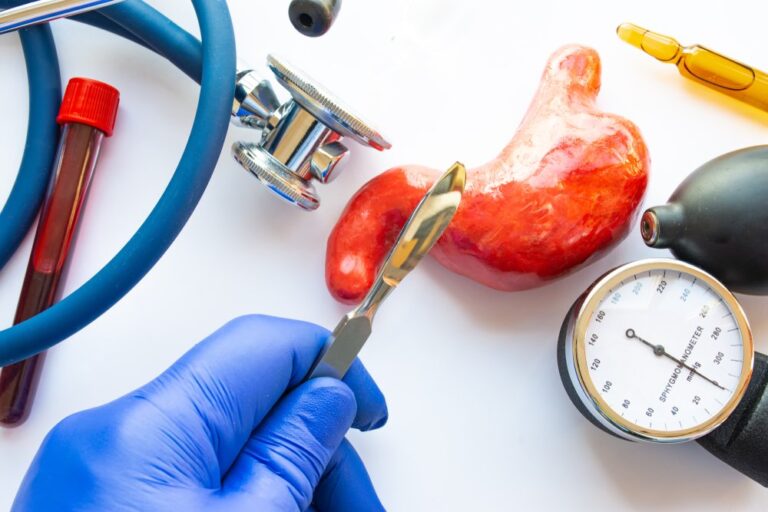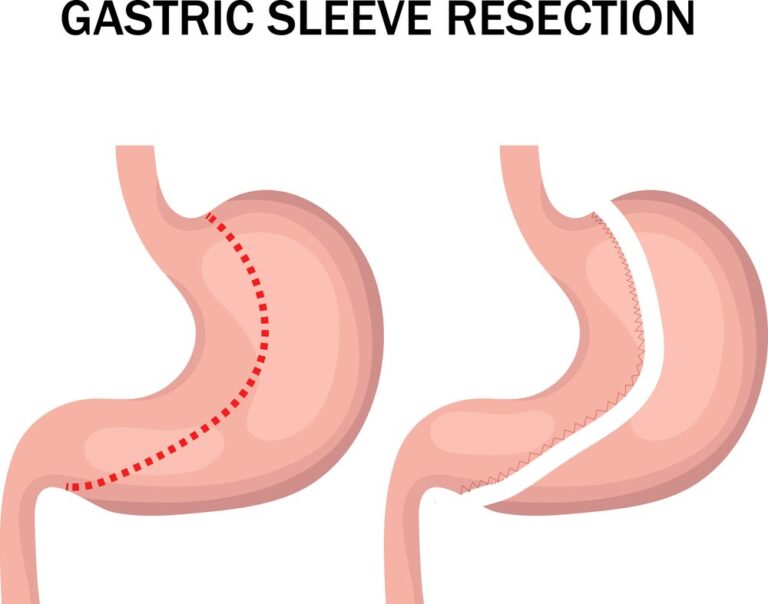Experiencing bad breath after gastric sleeve surgery can be a common concern due to several factors related to the surgical procedure and changes in dietary habits. Here are some additional reasons and tips to help address bad breath:
| Tips for Addressing Bad Breath After Gastric Sleeve Surgery |
|---|
| Dry mouth |
| Oral hygiene |
| Ketosis |
| Acid reflux |
| Nutritional deficiencies |
| Regular dental check-ups |
| Breath fresheners |
If bad breath persists despite practicing good oral hygiene and following a healthy diet, it’s advisable to consult your healthcare provider for further evaluation and guidance. They can assess your individual situation and provide appropriate recommendations to address the issue.
Get a $1000 Off on Gastric Sleeve in Miami
Dry Mouth and Reduced Saliva Production
Dry mouth, also known as xerostomia, is a condition characterized by reduced saliva production. It can be caused by various factors, including medications, medical conditions, and lifestyle habits. Here are some key points about dry mouth and ways to address it:
- Causes of dry mouth: Medications such as antidepressants, antihistamines, and certain blood pressure medications can contribute to dry mouth. Medical conditions like diabetes, Sjogren’s syndrome, and autoimmune disorders can also affect saliva production. Additionally, lifestyle factors such as smoking, mouth breathing, and excessive caffeine or alcohol consumption can cause dry mouth.
- Importance of saliva: Saliva plays a crucial role in maintaining oral health. It helps cleanse the mouth, neutralize acids, remineralize tooth enamel, and facilitate digestion. Insufficient saliva can lead to oral discomfort, increased risk of dental cavities, difficulty in chewing and swallowing, and bad breath.
- Tips for managing dry mouth:
- Stay hydrated: Drink plenty of water throughout the day to keep your mouth moist. Sipping water frequently helps maintain saliva flow.
- Avoid irritants: Limit or avoid substances that can worsen dry mouth, such as tobacco, caffeine, and alcohol.
- Use a humidifier: Using a humidifier in your bedroom can help add moisture to the air and alleviate dry mouth symptoms during sleep.
- Opt for sugar-free products: Choose sugar-free gums, lozenges, or candies to stimulate saliva production without promoting tooth decay. Look for products containing xylitol, which can help combat dry mouth and prevent cavities.
- Practice good oral hygiene: Brush your teeth at least twice a day with a fluoride toothpaste and a soft-bristled toothbrush. Use an alcohol-free mouthwash to rinse your mouth and keep it fresh.
- Consider saliva substitutes: Over-the-counter saliva substitutes or artificial saliva products can provide temporary relief by moistening the mouth. Consult with your healthcare provider or dentist for recommendations.
- Consult your healthcare provider: If dry mouth persists or significantly affects your quality of life, consult your healthcare provider for a thorough evaluation. They can help identify the underlying cause and recommend appropriate management strategies.
It’s important to address dry mouth to maintain oral health and overall well-being. By implementing these tips and seeking professional advice when needed, you can manage dry mouth symptoms and promote a healthier oral environment.

Bacterial Overgrowth in the Mouth
Bacterial overgrowth in the mouth can lead to various oral health issues, including bad breath, gum disease, and tooth decay. Here’s some important information about bacterial overgrowth and ways to address it:
- Oral microbiome: The mouth is home to numerous bacteria, both beneficial and harmful. When the balance of these bacteria is disrupted, it can lead to an overgrowth of harmful bacteria, resulting in oral health problems.
- Causes of bacterial overgrowth: Poor oral hygiene, inadequate saliva flow, certain medical conditions, and lifestyle factors can contribute to bacterial overgrowth in the mouth. Factors such as infrequent brushing, skipping flossing, or not using mouthwash allow bacteria to thrive and multiply.
- Tips for managing bacterial overgrowth:
- Maintain good oral hygiene: Brush your teeth at least twice a day with fluoride toothpaste, paying attention to all tooth surfaces and along the gumline. Floss daily to remove plaque and food particles from between the teeth. Use an antimicrobial mouthwash to help kill bacteria.
- Clean your tongue: Bacteria can accumulate on the surface of the tongue, contributing to bacterial overgrowth. Use a tongue scraper or gently brush your tongue to remove bacteria and debris.
- Stay hydrated: Drinking an adequate amount of water helps promote saliva production, which plays a vital role in rinsing away bacteria and maintaining a healthy oral environment.
- Limit sugar intake: Bacteria feed on sugars, leading to increased bacterial growth. Minimize your consumption of sugary foods and drinks to reduce the availability of nutrients for bacteria in the mouth.
- Visit your dentist regularly: Regular dental check-ups and professional cleanings help remove plaque and tartar buildup, reducing the bacterial load in the mouth. Your dentist can also identify and address any underlying issues contributing to bacterial overgrowth.
- Quit smoking: Smoking promotes the growth of harmful bacteria in the mouth. Quitting smoking not only improves your overall health but also helps reduce bacterial overgrowth and related oral health problems.
- Consider probiotics: Probiotic supplements or foods containing beneficial bacteria strains can help restore a healthy balance in the oral microbiome. Consult with your healthcare provider or dentist before incorporating probiotics into your oral care routine.
By practicing good oral hygiene, maintaining a healthy lifestyle, and seeking professional dental care, you can effectively manage bacterial overgrowth in the mouth. Regular preventive measures and a balanced approach to oral health will contribute to fresher breath, healthier gums, and stronger teeth.
Dietary Factors and Odor-Causing Foods
Dietary factors, including certain foods, can contribute to the development of bad breath. Here are some important points about odor-causing foods and how they can affect breath:
| Dietary Factors and Odor-Causing Foods |
|---|
| Strong-smelling foods |
| Sulfur-containing foods |
| Acidic foods and beverages |
| High-protein diets |
| Dairy products |
| Dry mouth |
| Alcoholic beverages and tobacco |
Tips to Address Bad Breath:
| Strategies |
|---|
| Practice good oral hygiene: Brush teeth twice a day, floss daily, use antibacterial mouthwash |
| Stay hydrated: Drink plenty of water to maintain saliva flow |
| Chew sugar-free gum: Stimulates saliva production and helps freshen breath |
| Moderate consumption of odor-causing foods: Limit intake or combine with other foods |
| Quit smoking: Smoking contributes to dry mouth and bacterial growth |
By being mindful of your diet and maintaining good oral hygiene practices, you can effectively manage bad breath caused by odor-causing foods. Remember to seek professional advice if bad breath persists despite these measures.
Maintaining Good Oral Hygiene Practices
Maintaining good oral hygiene practices is crucial for keeping your teeth and gums healthy. Here are some key points to consider:
- Brushing your teeth: Brush your teeth at least twice a day, ideally after meals, using a soft-bristled toothbrush and fluoride toothpaste. Brush all tooth surfaces, including the outer, inner, and chewing surfaces, with gentle circular motions. Pay attention to your gumline and tongue as well.
- Flossing daily: Flossing helps remove plaque and food particles from between your teeth and along the gumline. Use a gentle back-and-forth motion to clean each side of the tooth. Consider using dental floss, interdental brushes, or water flossers based on your preference and needs.
- Tongue cleaning: Use a tongue scraper or toothbrush to gently clean your tongue’s surface. This helps remove bacteria, debris, and odor-causing compounds that can contribute to bad breath.
- Use an antimicrobial mouthwash: Rinse your mouth with an antimicrobial mouthwash to help reduce bacteria and freshen your breath. Choose a mouthwash that is alcohol-free to avoid drying out your mouth.
- Replace your toothbrush regularly: Replace your toothbrush every three to four months or sooner if the bristles become frayed. A worn-out toothbrush may not effectively clean your teeth and gums.
- Maintain a balanced diet: A healthy diet plays a vital role in oral health. Limit sugary and acidic foods and beverages, as they can contribute to tooth decay. Instead, focus on consuming a variety of nutritious foods that support overall oral health.
- Limit snacking and sugary drinks: Frequent snacking and consumption of sugary drinks can increase the risk of tooth decay. If you do snack, choose healthier options like fruits, vegetables, or cheese, and rinse your mouth with water afterward.
- Drink plenty of water: Water helps rinse away food particles and keeps your mouth hydrated. It also helps stimulate saliva production, which plays a crucial role in maintaining oral health.
- Visit your dentist regularly: Regular dental check-ups are essential for maintaining good oral health. Schedule dental appointments every six months, or as recommended by your dentist, for professional cleanings, oral examinations, and early detection of any potential issues.

Staying Hydrated to Combat Dry Mouth
Staying hydrated is crucial for combating dry mouth, a condition where there is insufficient saliva production. Here are some key points to consider:
| Staying Hydrated to Combat Dry Mouth |
|---|
| Importance of hydration |
| Water consumption |
| Limit caffeine and alcohol |
| Sugar-free drinks and hydrating foods |
| Avoid sugary and acidic drinks |
| Use a humidifier |
| Avoid mouthwashes with alcohol |
| Saliva substitutes |
| Consult your healthcare provider |
Remember to prioritize hydration to combat dry mouth and maintain overall oral health.
Using Mouthwashes and Breath Fresheners
Using mouthwashes and breath fresheners can be helpful in maintaining fresh breath and oral hygiene. Here are some important points to consider:
- Mouthwashes:
- Antiseptic mouthwashes: These mouthwashes contain ingredients such as chlorhexidine or essential oils that help kill bacteria and reduce plaque formation. They are beneficial for maintaining oral health, especially for individuals with gum disease or those who are at higher risk of dental infections. Follow the instructions provided by the manufacturer or your dentist.
- Fluoride mouthwashes: Fluoride mouthwashes help strengthen tooth enamel and prevent tooth decay. They are particularly useful for individuals who are at higher risk of developing cavities. Use fluoride mouthwash as directed by your dentist.
- Breath fresheners:
- Sugar-free mints and gums: Sugar-free mints or gums can help freshen your breath temporarily. They stimulate saliva production, which helps wash away bacteria and food particles. Look for products that contain xylitol, a natural sweetener that has been shown to inhibit the growth of bacteria in the mouth.
- Breath sprays: Breath sprays provide a quick and convenient way to freshen your breath on-the-go. Choose alcohol-free breath sprays to avoid drying out your mouth.
- Natural remedies:
- Chewing on herbs: Chewing on herbs like parsley, mint leaves, or cloves can provide a natural and refreshing breath freshening effect. These herbs contain natural compounds that can help neutralize odors.
- Water and lemon: Rinsing your mouth with water and a squeeze of lemon can help temporarily freshen your breath. However, be cautious as the acid in lemon juice can erode tooth enamel if used excessively.
When to Consult Your Healthcare Team About Bad Breath
It is advisable to consult your healthcare team if you are experiencing chronic or persistent bad breath that does not improve with regular oral hygiene practices. Here are some situations when it may be appropriate to seek professional advice:
| When to Consult Your Healthcare Team About Bad Breath |
|---|
| Despite good oral hygiene |
| Chronic halitosis |
| Severe and sudden onset |
| Accompanying symptoms |
| Impact on daily life and self-esteem |
Consulting your healthcare team in these situations allows for a thorough evaluation, identification of any underlying causes, and appropriate guidance and treatment options. They can address any concerns you may have and provide personalized care based on your specific needs.
Factors Contributing to Bad Breath
Several factors can contribute to bad breath, also known as halitosis. Here are some key factors to consider:
- Poor oral hygiene: Inadequate brushing, flossing, and tongue cleaning can allow bacteria to accumulate in the mouth, leading to bad breath. Plaque buildup, food particles, and bacteria can release unpleasant odors if not properly removed.
- Food and drink: Certain foods and beverages can cause temporary bad breath. Strong-smelling foods like garlic, onions, and spices, as well as beverages like coffee and alcohol, can leave lingering odors in the mouth.
- Tobacco use: Smoking or using tobacco products can cause persistent bad breath. Tobacco leaves a strong smell in the mouth and can also contribute to gum disease and other oral health issues.
- Dry mouth: Saliva helps cleanse the mouth and neutralize acids produced by bacteria. Reduced saliva flow, often caused by factors such as certain medications, mouth breathing, or dehydration, can lead to dry mouth and contribute to bad breath.
- Oral infections: Infections in the mouth, such as gum disease (periodontitis) or dental abscesses, can produce foul-smelling breath. These conditions require professional treatment to address the underlying infection and improve breath odor.
- Medical conditions: Some medical conditions can contribute to bad breath. Examples include sinus infections, respiratory tract infections, acid reflux, diabetes, liver or kidney disease, and certain metabolic disorders. Consulting with a healthcare provider can help identify and address these underlying conditions.
- Poorly fitting dental appliances: Ill-fitting dentures, dental braces, or oral appliances can trap food particles and bacteria, leading to bad breath. Regular cleaning and adjustments can help alleviate this issue.
- Poorly cleaned dental restorations: Dental restorations, such as fillings or crowns, can collect plaque and bacteria if not adequately cleaned. Regular dental visits and proper oral hygiene can help prevent odor-causing bacteria from accumulating on these restorations.
Addressing bad breath often involves improving oral hygiene practices, maintaining proper hydration, and seeking professional dental care. It’s important to identify and address any underlying factors contributing to bad breath for optimal oral health and fresh breath.
References:
- BariatricPal. (2022). Bad Breath After Weight Loss Surgery: Causes and Remedies. Retrieved oct, 2020
- Verywell Health. (2022). Bad Breath After Weight Loss Surgery. Retrieved oct 10 2022






